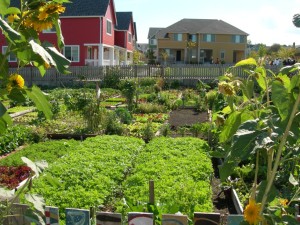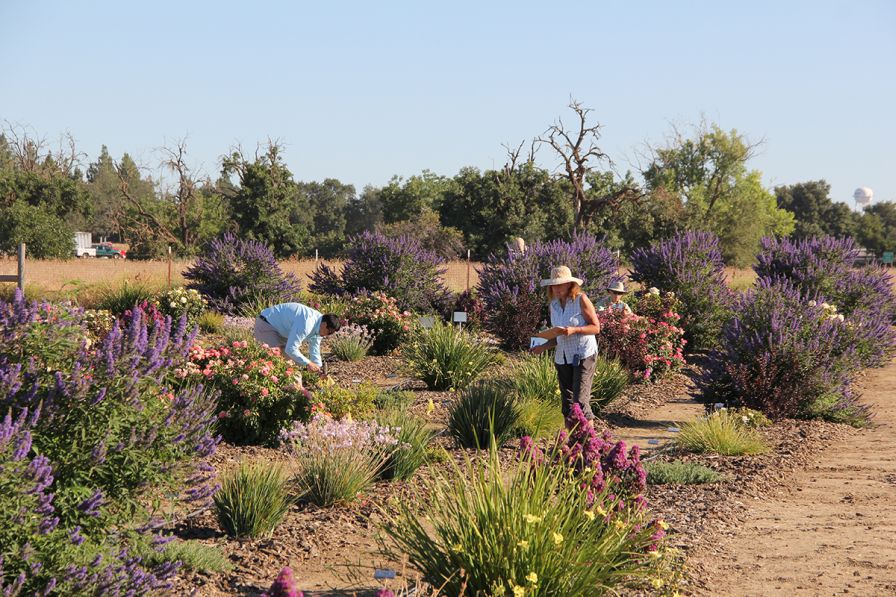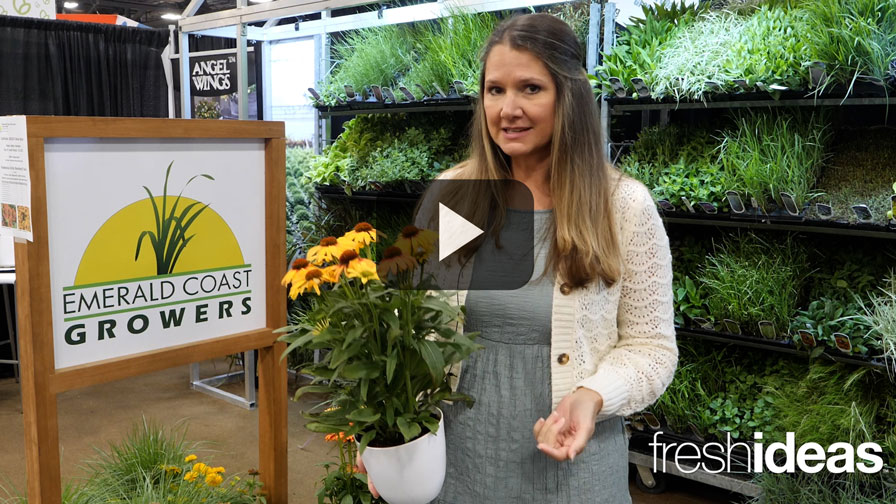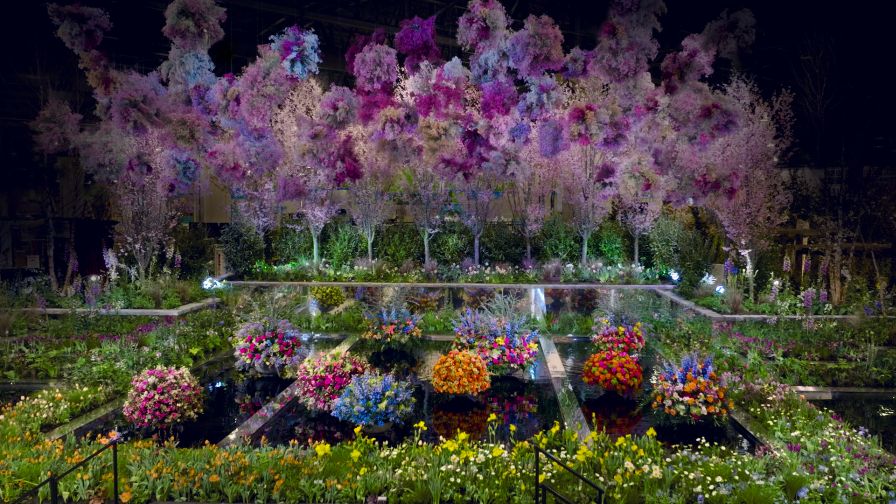Garden Retail (And Even Gardens) Confuse Zoning Boards
 Garden retail occupies a gray area between agriculture and straight-forward retail, a position that seems to generate far too many letters from local zoning boards. Another complication is that many garden stores first opened a few decades ago in what was a rural area outside an urban area, but today they are completely surrounded by residential areas. They will often be grandfathered into the current zoning rules, but what can change that status, or how that status limits what can be sold can be capricious.
Garden retail occupies a gray area between agriculture and straight-forward retail, a position that seems to generate far too many letters from local zoning boards. Another complication is that many garden stores first opened a few decades ago in what was a rural area outside an urban area, but today they are completely surrounded by residential areas. They will often be grandfathered into the current zoning rules, but what can change that status, or how that status limits what can be sold can be capricious.
Here’s a round up of recent news stories and resource sites that demonstrate just how difficult things can get for garden retailers because of zoning rules.
Only Plant Retail Is Allowed
Kensington Garden Center, located in Berlin, CT, got into trouble with its local board. Like many garden centers across the country, it’s in a residential area. It likely was grandfathered, with rules that originally worked fine for the business. But as the years passed, what customers expect from their local garden shop has expanded, and Kensington expanded with those expectations. And that is what generated a cease and desist letter. It has been selling gift items.
What is striking is that these items, while outside of traditional garden sales, have no impact on the community. They’re not fertilizers or pest controls (which are allowed, presumably). They won’t attract pests the way mulch can (most likely another allowable item). And the store is a small one, so the addition of gift items is unlikely to increase road traffic. So the store is barred from selling any products that aren’t directly related to gardening. No candles, no gift items of any sort.
A Kansas farm marketer I met at the North American Farm Direct Marketing Association’s [NAFDMA] Conference in February told me she is having trouble with her local zoning boards because they see agriculture only in terms of large scale operations. Her pumpkins and berries, to their mind, isn’t really agriculture. Several of the farm markets we visited in British Columbia were also struggling with agricultural rules that were intended originally to protect farmers but that now restrict them. One farm market discovered that once it added a winery to its business, it was suddenly able to quadruple the size of the gift shop, and was able to add several attractions.
Another issue that we heard about is how British Columbia farms and wineries are getting into trouble for hosting weddings. It’s not an approved activity for the farm, and so the local government is cracking down. A similar controversy is cropping up in the U.S., as well. A recent article from the Sacramento Bee shows those hosting weddings area are making their neighbors nervous. There is a fear that the more elegant events are drawing people who are going to be concerned about combines and crop dusters.
Ohio Farm Markets Have A 50% Rule
Produce growers who open a retail outlet are exempt from local zoning rules so long as 50% of what is sold is produced on the farm. Local zoning can step in, however, on issues like the size of parking lots, building size, and public safety.
Grower retailers often face similar rules in other states. A New York State nursery guideline document includes comments such as:
The Department has concluded that stockpiled soil and mulch are often necessary for the onfarm production, preparation and marketing of nursery stock. Soil and mulch are used on the farm to plant and care for nursery stock which is grown in the ground on the farm and to prepare the stock for sale. Soil and mulch are also sold to retail and wholesale customers for use in replanting nursery stock. Potting soil used by the nursery operation is also considered necessary for the production of horticultural plant material. Therefore, the storage, use and sale of soil, mulch and potting soil, in an amount consistent with the size and scope of the nursery, is part of the farm operation.
This kind of language highlights just how limiting viewpoints can be when it comes to plant sales. To qualify for an agricultural designation, state and local governments want on-farm markets or grower retailers to conform to their understanding of growing and selling. The obvious solution would be to have the store reclassified commercial and retail. But in some communities, that means the store would need to be relocated. If the entire area is designated agricultural, then the board cannot allow a different type of zoning to exist within that area.
Even Gardens Run Into Trouble With Zoning
Philadelphia has updated its zoning rules to allow for community gardens. Many urban areas across the country have zoning rules that linger from the 50s and 60s, when a desire for conformity in landscape ruled. A common problem for zoning are compost bins and any stored mulch or potting soil. Philadelphia took the forward-looking steps to ensure these types of gardens would be allowed.
However, even those rules are causing headaches. Philly.com recently ran a profile of a lawyer who is helping community gardens get past a zoning rule that requires community gardens to essentially get permission from its neighbors before moving forward.
Here’s an excerpt from the article that details what is required by the gardens:
Applicants must schedule a hearing, post notices on the property, notify neighbors and the district Council person, meet with community groups, provide testimony at the hearing, demonstrate that the proposed use is consistent with the code and related standards, and, if opponents testify that the garden has adversely affected the neighborhood, submit evidence to the contrary.
Zoning rules do a lot of good for communities. But they are limited by the imagination of those who wrote them and those who enforce them. The more you can do to encourage a broader view of what modern garden retailing looks like, and what modern gardening is, the better it will be for the industry.









